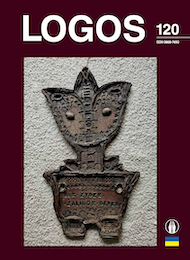Faidro kalbos reikšmė Platono „Puotoje“: keletas charakteristikų
The Meaning of Phaedrus’ Speech in Plato’s Symposium: Several Characteristics
Author(s): Nerijus StasiulisSubject(s): Aesthetics, Ancient Philosphy, Theory of Literature
Published by: Visuomeninė organizacija »LOGOS«
Keywords: Aristophanes; Phaedrus; comedy; Plato; Symposium; tragedy;
Summary/Abstract: This article on the significance of the Phaedrus speech in Plato's Symposium is based on the rather scarce research (publications) devoted to it. Understanding the speech of the Phaedrus is not an end in itself: it is seen as a foundational or inaugural speech, in the sense that it introduces or demonstrates the features that characterise the whole work. The understanding of the Phaedrus speech is carried out within a more general horizon, in order to understand not only and not so much the Symposium as a whole, but by focusing on its 'conclusion' about the essential connection between tragedy and comedy, which is seen as the leitmotif of the whole work. It is suggested that because of the importance of comedy in this work, Aristophanes should perhaps be regarded as its most important figure. The study of Phaedrus' speech and character should therefore ultimately be subordinated to a reflection on Aristophanes' role in the work.
Journal: LOGOS - A Journal of Religion, Philosophy, Comparative Cultural Studies and Art
- Issue Year: 2024
- Issue No: 120
- Page Range: 6-16
- Page Count: 11
- Language: Lithuanian

